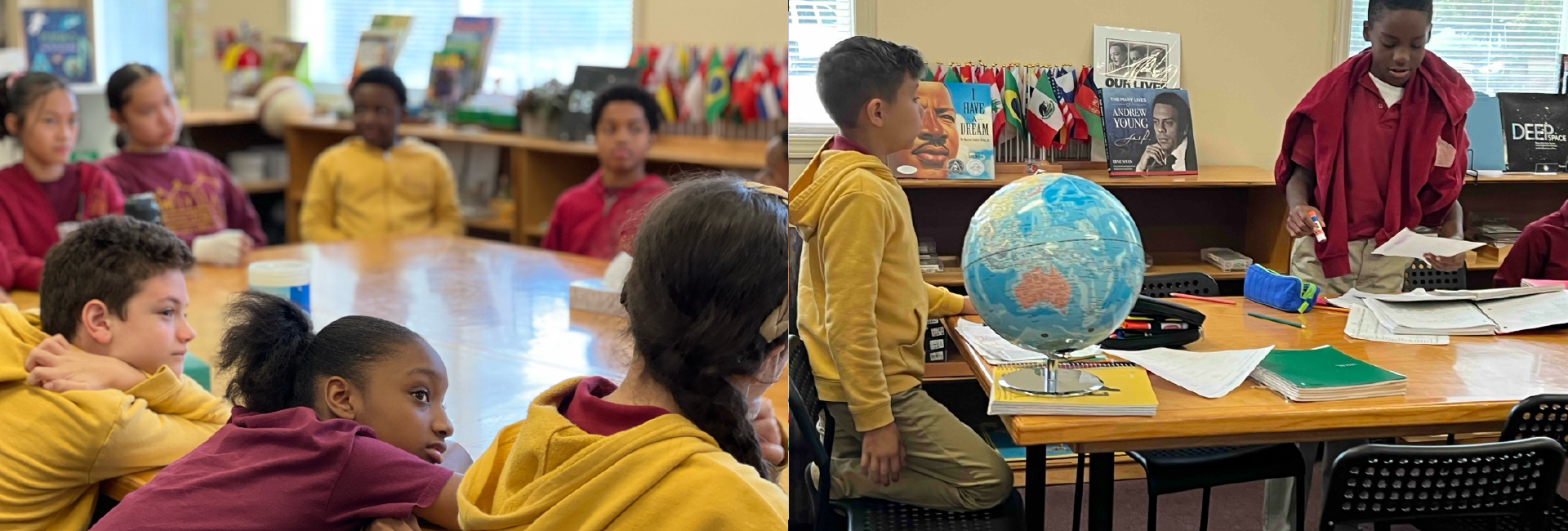UPPER Elementary Program
Like the multi-age, 3-year cycle in the lower elementary program, children in grades 4th through 6th make up the upper elementary program. Ranging from ages 9 to 12 years-old, upper elementary children are either in the middle of, or near the end of the Second Plane of Development. Students moving up from the lower elementary program are better prepared to take on more abstract concepts, as they strive to acquire a broader base of knowledge through project-based learning in the upper elementary program. Though the impressionistic lessons are revisited from the lower elementary curriculum, children are no longer in the imaginative sensitive period in the upper elementary—they are truth seekers. Therefore, upper elementary children are inclined to research; and the work that is presented in this program seeks to introduce a more defined, rigorous, and meaningful academic experience for the students in the content areas of biology, botany, astronomy, chemistry, geography, physics, geometry, mathematics, language, music, art, and history. Activities in this program include more fields trips, scientific experiments, research, outside social interaction, social structure, as well as community service projects.


In addition to the 4th through 6th grade students, the upper elementary program also consists of 7th and 8th graders who are now in the Third Plane of Development. This setup cultivates an academic community where collaborative and independent learning takes center stage. These 12- to 14-year-olds’ practical and social lives are intimately tied to their cultural environment and experiences. Adolescents will become experiential learners who desire the freedom to choose what they want to learn from a diverse array of subjects and lessons presented by our guides. These lessons are made available and presented in accordance with the required state and national academic standards for each of the grades, and age groups. The lessons and environment are carefully prepared in such a way that allows students to follow their best interests, while still being exposed to grade-appropriate rigor, coupled with the added possibility of upper-grade interaction. For this reason, autonomy with little external meddling is pivotal.
Since our children learn by “doing,” abstract learning that involves problem-solving and socialization skills becomes paramount in this stage of their journey. Most importantly, the students themselves play a major role in selecting learning content in science, technology, literature, and humanity topics. Furthermore, with such a diverse Montessori curriculum, the students will have an active role in developing community service projects, experiential learning, field trips, business ownership, and creative projects designed to help them achieve mastery.



